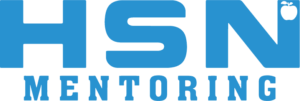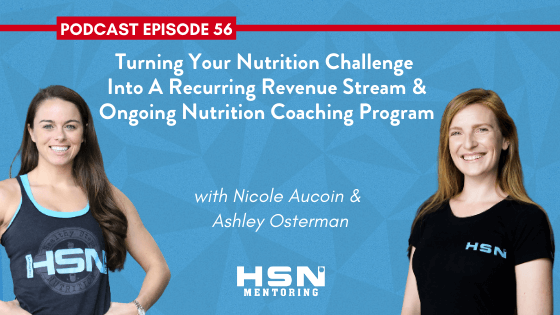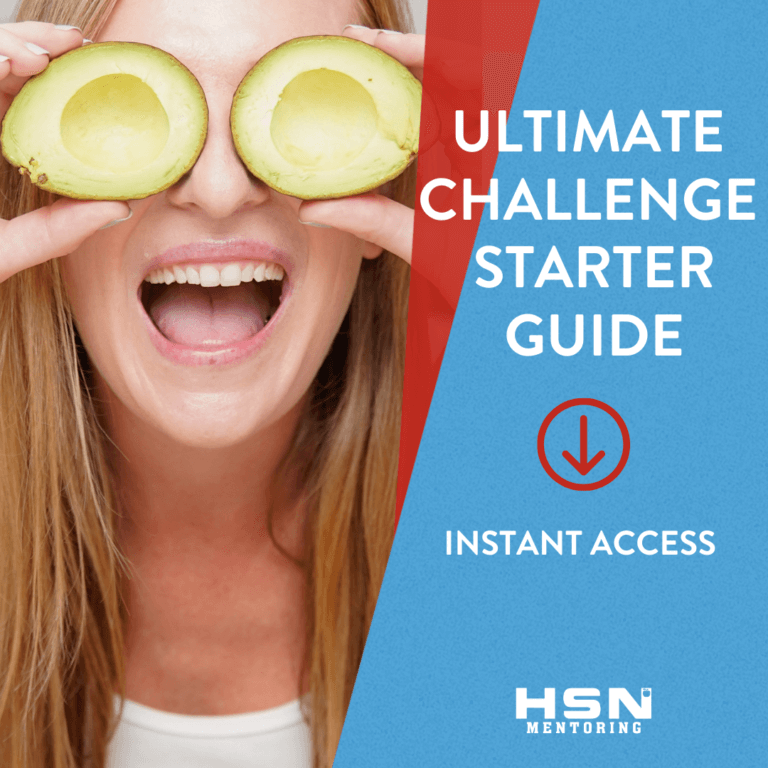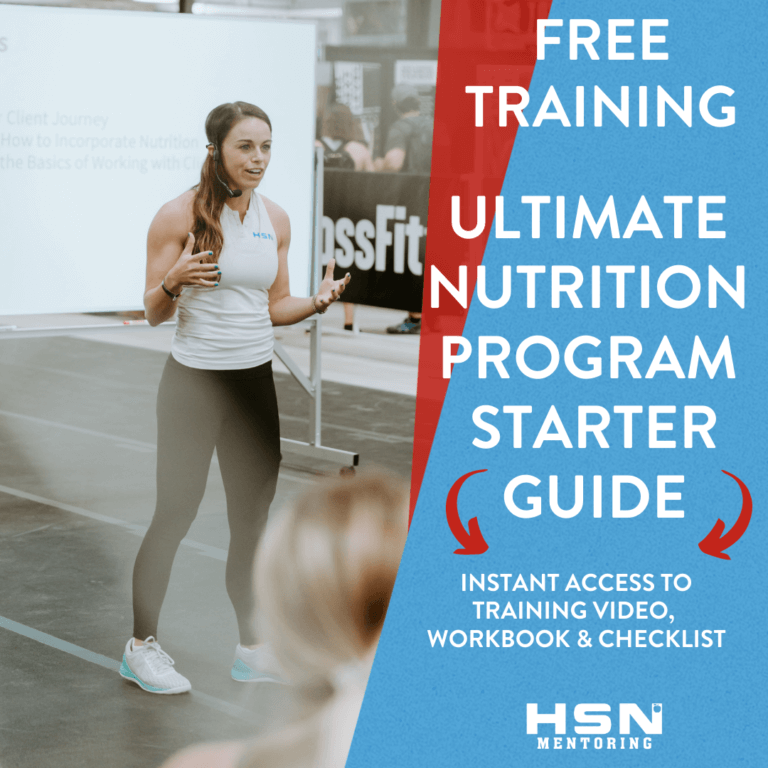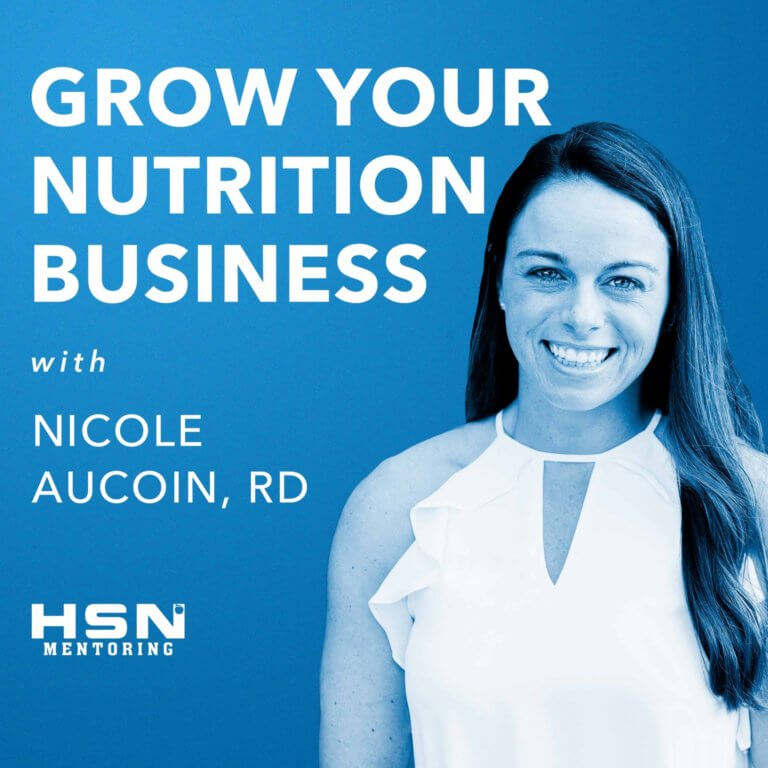The overwhelming majority of gym owners and nutrition coaches will launch a nutrition challenge in the new year. It makes sense, people are motivated to start something new in the new year, but the problem is their program ends at the end of a challenge.
This week on the podcast, Ashley Osterman and Nicole Aucoin discuss proven strategies to help gym owners and coaches use the momentum from nutrition challenge into an ongoing coaching program and recurring revenue stream.
Click the link in the show notes for FREE help and to get instant access to a Nutrition Challenge Starter Guide!
Additional Challenge-Related FREE Help
Grow Your Nutrition Business Podcast Episodes:
Blogs:
Additional FREE Help Related To
Building A Nutrition Program In A Gym
LISTEN: How To Price & Package Your Nutrition Program HERE
LISTEN: How To Build A Nutrition Program Into A CrossFit Gym HERE
LISTEN: Nutrition Made Simple Podcast – CrossFit, Nutrition & Your Health HERE
HSN Mentoring Client Highlight: Meet Nikki Graham, Owner of Graham Strength & Conditioning, How Nikki Graham, A Gym Owner, Built A Thriving Nutrition Program & What Her Clients Say About ItHERE
What The Challenge Guide Includes:
Planning Checklist
How To Structure Your Nutrition Challenge
How To Continue Your Nutrition Program Beyond A Challenge
Additional Resources To Plan A Successful Challenge All In One Place
Episode Transcript:
Nicole Aucoin (00:01):
Welcome back to the Grow Your Nutrition Business podcast. At Healthy Steps Nutrition we believe something as fundamental as nutrition shouldn’t be complicated. We help gym owners and coaches build successful nutrition programs without reinventing the wheel. We’ve helped over 3000 nutrition coaches and gym owners build successful nutrition programs. I’m your host, Nicole Aucoin, registered dietitian and founder of Healthy Steps Nutrition, CrossFit HSN, and HSN mentoring. I’m also the author of, The Basics of Nutrition Coaching, CrossFit Preferred Nutrition course. I’m going to teach you how to take one step at a time to build a successful nutrition program where you finally feel confident talking about nutrition to your members and communities. Well, it’s the new year. The overwhelming, majority of gym owners and nutrition coaches will launch a nutrition challenge in the next month. It makes sense. People are more motivated to start something new around a new year, around a milestone. But the problem is their nutrition program ends at the end of this challenge.
Nicole Aucoin (01:13):
This week on the podcast, Ashley Osterman, our director of nutrition education at Healthy Steps Nutrition, and I are discussing proven strategies to help our listeners use a nutrition challenge and leverage that momentum into an ongoing nutrition coaching program and a reoccurring revenue stream. This is important for two reasons. One, your clients need more support after a challenge is over to continue to see great results. Number two, it gives you a boost in nutrition coaching clients for your nutrition coach, which means reoccurring revenue. All right, here’s the one assumption is that you are building a membership for nutrition coaching. Like you would a gym membership. This it’s so important so that you don’t start at zero clients every month. We’ll get to this episode on turning your nutrition challenge into a reoccurring revenue stream right after this message.
Nicole Aucoin (02:15):
Did you know that HSN mentoring has a turn key solution to save you time and not reinvent the wheel when it comes to building a nutrition program from scratch? HSN mentoring starts with a training process for an owner and a nutrition coach. It includes online modules, homework, and six mentoring calls. The training teaches you had to set up a nutrition program, how to market your nutrition program, how to coach clients using our habit based approach, and most importantly, how to retain them. Lastly, we talk about a nutrition challenge and how to convert your clients into ongoing coaching after the challenge is over. Getting started is pretty easy. You just need a book or free call so that we can learn more about you. From there, if it’s a good fit, we give you the link to sign up and you go through the training and launch your program in four to six weeks. All right, let’s get to it. Enjoy this episode on turning your challenge into a reoccurring revenue stream.
Nicole Aucoin (03:26):
Welcome back to the Grow Your Nutrition Business podcast. Ashley, first episode of the year.
Ashley Osterman (03:31):
Can you believe it’s 2021? What a whirlwind of last year. You know what? We all grew so much and so many gyms build additional revenue streams and we really stepped outside of our comfort zone.
Nicole Aucoin (03:46):
Yeah. It really caused us to pivot and grow. And I’ve just been so inspired by all of the bright spots that we’ve seen with so many of our gyms and our coaches running this program. And I’m just really excited to see what they do in this new year. All right, well, let’s get right to it. Gym owners, most gyms, will launch nutrition challenges in January. It’s a new year. People are more motivated to take action during a milestone like a new year. This is a great time to run a nutrition challenge.
Ashley Osterman (04:17):
Yeah. I feel like a lot of people use the new year as a great way to start talking about nutrition. But I wonder too, how many gyms and coaches only talk about nutrition during and around a challenge.
Nicole Aucoin (04:30):
Nine times out of 10 gym owners tell me they have informal conversations about nutrition or they run a nutrition challenge and their program ends at the end of the challenge, which prompted us to make this episode today. Turning your nutrition challenge into a reoccurring revenue stream and ongoing nutrition coaching program. This is really how many gyms will kickstart their nutrition programs, is through a nutrition challenge.
Ashley Osterman (04:58):
That is such a great way because it starts the conversation. It gets people excited about nutrition. But I think one thing that, like you were saying Nicole, a lot of people really miss is that the nutrition aspect ends once the challenge ends.
Nicole Aucoin (05:14):
The problem is people are not going to see results or change their entire lifestyle in a 28 day challenge.
Ashley Osterman (05:20):
No.
Nicole Aucoin (05:20):
It’s just not going to happen. It’s funny, the whole way Healthy Steps Nutrition mentoring started was through a gym. And I had reached out to this gym and they said, “I want to run a nutrition program beyond a challenge.” And that really got us thinking of how could we replicate this program beyond a nutrition challenge where the gym owner and coaches were the one facilitating it. And she was well ahead of her game at that point. But it’s such an important piece of the puzzle that gym owners need to be thinking about. If your clients see great results during a challenge, why not use that kickstart their ongoing nutrition coaching journey with you instead of, “Oh, okay, your program’s done good job. See you later.”
Ashley Osterman (06:00):
Yeah. People will be excited and when they see those wins just over the 28 days or a six week time period is so great. But letting them know that after the challenge, you have something to help support them even further to reach their health and wellness goals. Because Nicole, we talk about it all the time. You can’t out exercise a bad diet. And the truth is, is that most people see between eight to 10 different types of diets and fads out there before they actually seek out a professional, which means people are overwhelmed. They don’t know what diet is right for them. And the truth is, if you’re not offering nutrition after a challenge at your facility, your clients are going to go find it elsewhere.
Nicole Aucoin (06:42):
They’re going to regain the weight that they worked really hard to lose. What’s the statistic? Two thirds of people will regain the weight they worked really hard to lose after a diet.
Ashley Osterman (06:50):
Yeah.
Nicole Aucoin (06:50):
So why not provide them the support to prevent that from happening? And this really goes to our first point. You have to map out your client journey. What does that really mean? What happens during a challenge and what support are you providing after the challenge is over? And one of the biggest mistakes I see with gyms is they run a nutrition challenge, and then they say, “Okay, if you need more help, then reach out to me,” instead of, “Hey, this is the first step to your journey. But ongoing coaching is really where the magic happens.”
Ashley Osterman (07:19):
You know, Nicole, we talk about this a lot with our mentoring clients when they’re running a challenge, is that you have to talk about what happened after the challenge, before the challenge even begins. It has to be a part of your marketing, which means you need time to plan. The reason being so many people do challenges. I know I’ve done some in the past. A lot of different gyms and facilities will offer a challenge, but it’s just the challenge. It’s a bootcamp. It’s a small period of time where crash course dieting or changing all these things at once. And then of course the weight comes back, of course those changes aren’t sustainable, because you haven’t turned them into habits. So by talking about that and putting that message into your marketing and into your communication, people are going to know what to expect afterwards, and that you can continue to support them.
Nicole Aucoin (08:06):
I want our challenge participants to come to the final meeting saying, “I’m ready to continue my journey with you. How do I upgrade my membership?” I don’t want people to just do a challenge and then see great results, and then think that they can do it on their own because I know for a fact that it is really hard to do it on your own, and you’re not successful nine times out of 10 doing it on your own. So why not be so clear with what happens after the challenge is over and give those clients the guidance, the path to upgrade their membership to nutrition and fitness after the challenge is over. Or maybe in this season, you have people that don’t feel comfortable coming to your gym, but they would sign up for a nutrition challenge and they can continue with ongoing nutrition coaching, just like a gym membership, after the challenge is over. Now, we’ve added an additional revenue stream and we’ve upgraded people so that your average revenue per member per month is higher when someone’s paying for nutrition and fitness.
Ashley Osterman (09:03):
Absolutely. And Nicole, when it comes to giving them that option to upgrade, you have to make it easy. You don’t want to make your client have several steps to upgrade. You want to make it a seamless process. It’s a easy transition from that challenge to that ongoing, customized support.
Nicole Aucoin (09:22):
I remember running challenges back in the day and I would have people line up like a conveyor belt. Do their measurements, do their biometrics and we would announce a winner at the very end, but I never really invested that time into meeting people individually. And partly because I didn’t charge for it. We made the challenge cheap and we were wanting a lot of people to do this challenge, which was great to get exposure. But if you’re really not able to make an impact long-term, then it’s tough. I would rather have less people do my challenge, charge so that I can give them that individual time and guide them to continue to upgrade their membership to nutrition and fitness.
Ashley Osterman (10:04):
Absolutely. Because without investing that individual time, having those individual meetings with your challenge participants, you’re really not going to turn your nutrition program, your clients, into ongoing nutrition revenue, because you haven’t taken the time to invest in them. When we talk about coaches, whether you’re a fitness or nutrition coach, you’re in the relationship business and you have to start building that trust. And that’s why we’ve come to realize those individual touch base meetings are so, so important. So, Nicole, what do you recommend for those individual meetings during a challenge period?
Nicole Aucoin (10:41):
So you want to meet with someone individually at the beginning and at the end of your nutrition challenge, if you’re doing 28 days. I would do a virtual quick check-in if you’re doing a six week nutrition challenge. I do not recommend going above six weeks or longer than a six week nutrition challenge if you’re totally doing a group nutrition challenge. People fall off, you’re not giving them that individual support. They’re not going to have as great of a success rate. So if you’re doing a 28 day challenge or a 30 day challenge, you want to meet with people individually to talk about their goals, test their biometrics, really find out their why, because that’s the reason why they should continue with you to ongoing coaching after, and just find out a little bit more about them.
Nicole Aucoin (11:22):
You’ll do a kickoff with everyone. You’ll have weekly touch bases, probably in a group setting, and then you’ll have that individual meeting at the end. Highlight their bright spots. What were the awesome things? What struggles did they have? And then guide them to continue with you to just nutrition coaching, or nutrition and fitness coaching. [inaudible 00:11:44] about 20 minutes at the beginning and 20 minutes at the end, and at that ending appointment is when they are upgrading their membership to nutrition and fitness or nutrition only. You don’t want to have this ending a meeting and then say, “Okay, contact me again.” Life happens, people get busy. They need an appointment on the books. And the other thing, we’re talking about the second tip here is, meet with people individually. You want to set that final meeting at the initial meeting. And this took me way too long to figure out, please don’t make this mistake if you’re listening.
Nicole Aucoin (12:18):
And if you’ve already launched a nutrition challenge, go ahead and schedule the final meeting now when people are really excited. It’s like having a competition on the books. If you have a competition date on the books, you are more likely to stay on track, you’re more likely to work out harder. If you don’t have that and say, “Oh, okay, I’m going to compete at some point,” life happens. Priorities might shift. If you have a follow-up visit on the books, your clients are more likely to be successful. This has been proven time and time again. Same thing goes with the challenge. You’re going to meet with people individually at the beginning and at the end. And that really brings us to our third point. You have to charge enough for the challenge too, a lot for that time.
Ashley Osterman (13:00):
Absolutely. You need to build that time for your coaches into your price of your challenge. I think that’s one big mistake that we also see a lot when we talk to gyms who just run challenges. They under value their challenge, and then that coach is strapped for time and they end up doing that conveyor belt method that you were talking about before Nicole. I know we have so many podcasts out about how to package and price your challenge and your programs, which we’ll link in the show notes. But Nicole, give us an idea, a high level overview for challenge pricing.
Nicole Aucoin (13:31):
So the first thing you want to think about is you want your challenge price to be above your ongoing coaching rate. So if we’re talking about converting to ongoing coaching, and that’s the goal to support people long after a challenge is over, the price cannot go up.
Ashley Osterman (13:45):
Right.
Nicole Aucoin (13:46):
People are not going to convert to ongoing coaching if your challenge price is really low and then you say, “Okay, I know you paid 39 for this challenge, but now I want you to pay 109 or 99 for ongoing monthly coaching.” I can guarantee you, not as many people will convert over to ongoing nutrition coaching. So I would price your challenge a little bit higher and then your ongoing coaching rate is a little bit lower. This is the first thing that we do in HSN mentoring. The first mentoring call is all about packaging and pricing. What do your nutrition only memberships look like? And then from there, let’s build it into your intake process and package hybrid memberships, which is nutrition and fitness.
Nicole Aucoin (14:29):
And then after we get those two prices nailed down is when we look at what is our challenge price going to be? So if you’re running a six week challenge, it definitely needs to be more than you would a lot for a 28 day challenge. But all of these things are things you need to think about so that you have a more successful turnover, conversion rate to ongoing nutrition coaching.
Ashley Osterman (14:50):
Absolutely. And we talk about conversion rates and this is another question we get quite often. Typically speaking, when you run a challenge, what percentage of the challenge participants would be a good target to convert onto ongoing coaching?
Nicole Aucoin (15:04):
I think there are so many factors that go into this. And I think the first one is confidence of your nutrition coach. If you’re not confident that you can really provide that client value or confident in the pricing, then it’s going to be a tougher conversation and your clients are going to feel that. And that’s honestly one of the reasons why we do role-playing during mentoring calls so that you can screw up with us, not feel confident with our mentors, but then when you go actually talk to clients, you are so confident and you guide them and increase that percentage, increase that conversion rate. I would expect at least 50% of people converting their clients to ongoing nutrition coaching. But when we look at our HQ location, we have one of our dieticians. Amanda, she converts 100% of people into ongoing coaching because she understands the value that she’s providing people with nutrition and fitness or nutrition only.
Ashley Osterman (15:55):
Absolutely. And you have to understand and make sure that you are not under pricing your challenge or your nutrition program in general. Our nutrition coaches give such a awesome service to our clients and we see how when they’re confident in their value, how they have so much better turn over when it comes to going to ongoing coaching with their clients during a challenge. Nicole, there is one last point we want to talk about today when turning your nutrition challenge into a reoccurring revenue stream and ongoing nutrition program. And that is, you need to ensure a professional and a consistent experience with all of your challenge participants.
Nicole Aucoin (16:38):
This is an interesting point because with challenges, sometimes there’s multiple coaches helping with the challenge, which means that consistency is more important than just one coach. Because if you’re trying to replicate the same thing, but you don’t have systems to do so, it’s going to be a lot tougher, and your clients in a gym setting talk to each other. So if you’re doing something different than I’m doing and our clients talk to each other and you’re following up with clients more than I am, it’s going to look like you’re providing better value, even though they’re paying for the same price.
Ashley Osterman (17:09):
Exactly.
Nicole Aucoin (17:10):
So consistent experience in a gym is so vital. And I think that’s one of the main benefits of having a system that’s already done, is you learn the system and then you ensure consistent experience between all of your coaches, instead of creating it from scratch every single time.
Nicole Aucoin (17:24):
Another thing with professional experience and goodness, I’ve run hundreds of challenges over the years, and I will be writing things or making videos as it happened or doing automations through MailChimp. Yes, it can work, but are you making a video with your iPhone or is it good quality? What are you talking about? Is there clear, actionable steps? How are you following up with people? There are so many that go into providing a professional experience. For us, it’s all done through the HSN app. So it’s one streamlined place to manage all of your clients. Ashley, there’s a few cool things that happen this year, or in 2020, with the app. One would be being able to add group habits to everyone in the app at the same time, it saves so much time.
Ashley Osterman (18:11):
So much time, especially when running a challenge. And we love to do a weekly themed habits. And it’s so easy click of a button to add everyone in that group, everyone tagged to that challenge to those habits.
Nicole Aucoin (18:22):
The other thing is those programs that we have where each week new videos pop up on clients’ profiles. And we built a bunch of different programs over 2020, really having to do with what people were dealing with right now with the pandemic. And we have a videographer crew come here and they tape all the videos. So even gyms running our program, they’re seeing dieticians, education material that’s professional quality from dieticians, that’s delivered to them through the HSN app.
Ashley Osterman (18:56):
So professional. Very streamlined. And then those coaches can then build off of that theme that they choose for the week. And we really focus on a holistic approach with our challenges and with our habits, looking at nutrition, physical activity, lifestyle, sleep, and stress management. Nicole, we actually did a tally of how many videos that we did in 2020 with our professional videographer team and it was over 250.
Nicole Aucoin (19:21):
Yeah. It was like 276. Next week we actually have him coming back to tape a whole other 80 plus videos that all go into the app. Our job is to make it easy for coaches to help their clients and not spend as much time reinventing the wheel. But if you are doing this on your own, totally fine. Map out what you want people to accomplish, what’s going to be your theme for each week and then make content around that. Remember people have to see things seven to 10 times before taking action. So if you’re only saying something once, it’s likely going to fly by the client and they’re not going to see it. Another thing when you think about a challenge is you need to slow down to actually speed up your client’s progress.
Ashley Osterman (20:04):
Yeah.
Nicole Aucoin (20:05):
And what do I mean there? Well, you really don’t want to focus on too many things at one time, which is why when we run nutrition challenges, we just focus on one habit each week. Let’s let clients nail that and then move on to the next one. Ashley, I want to talk about a couple of things, because people are going to be running challenges right now, a couple of things that have worked really well with increasing engagement during a challenge virtually.
Ashley Osterman (20:31):
Yeah, absolutely. We’ve found so many different things in different strategies this year, as we had to pivot and jump into more of a virtual realm. But we found so many ways to keep our clients engaged. And one of them had been our weekly nutrition mini seminars. So each week during our last challenge, every Saturday, myself and Nicole, we would talk about one theme that the clients were working on that week. Whether it be eating more veggies, drinking more water, getting enough sleep, managing their stress mindfully. And we would have a quick seminar every Saturday, 15 minutes virtually, we let everyone join in and ask questions and it really helped us increase the engagement in a virtual setting.
Nicole Aucoin (21:14):
Ashley, so we did those seminars, but then not every single person could join live.
Ashley Osterman (21:19):
Of course.
Nicole Aucoin (21:19):
So we recorded them and ship them out through the app so that everyone could watch the video. The other thing we did is we picked prizes every single week, instead of it being one giant prize at the end. And there were weekly prizes that we passed out, which kept the engagement going. And if you’re thinking, “Man I don’t have the money to spend on all these weekly prizes,” look within your community. Are there any businesses that you could partner with? And they could donate a $15 to $20 prize. People love free stuff.
Ashley Osterman (21:50):
Absolutely, people love free stuff. And we were able to find so many awesome local like-minded businesses that we partnered with. And it was great because we got to share with their following. They got to share with our following. We had a local coffee shop. We had one of the awesome local restaurants, a local surf and skate shop. So reach out to your community. People don’t have a lot of money right now for marketing so these type of partnerships really work and both advantage for both parties working.
Nicole Aucoin (22:17):
Ashley, you mentioned the nutrition talks and I love that, because that was something that worked so well that we decided to do that as free help every single month for our following. And then we also give the presentations to every gym so that they can build their own following and re-engaged past clients. And so many gyms have used those to actually get nutrition only clients. They register for that nutrition talk, it’s through a zoom meeting, and then their call to action at the end is join our nutrition challenge or join our individual coaching program. And it works so well because free help, especially in a zoom meeting or nutrition seminar, where people can join from the comfort of their home. And it’s a two way conversation. It gives you the ability to establish yourself as the expert and establish you as the guide to help your clients. You’re not going to be giving them the super strict diet, you’re going to guide them to become a healthier version of themselves.
Ashley Osterman (23:18):
Absolutely At Healthy Steps Nutrition we really focus on making healthy, sustainable lifestyle changes. We don’t focus on a restrictive diet. And we realize that everyone is different. And that’s why we really look at a holistic approach when working with our clients. And the nutrition talks had just been such an amazing addition to our free help that we provided this year. We not only do the nutrition talks, but we also have some community partnership talks too. We really loved getting involved with our local community, working with several nonprofits and it inspired us to help inspire a lot of the gyms that work with HSN mentoring to have local partnerships in their communities and really give some free help and give back.
Nicole Aucoin (23:57):
And we actually decided to give one nutrition talk to every gym owner so that they can do it for their own communities and get a taste of all the stuff that we provide. So if you are listening to this podcast, click the link in the show notes and you can actually download a nutrition talk. So the speaking notes, the presentation, a recording, everything is laid out for you. All you have to do is make a signup page and then give that presentation to your community. It’s a great way to re-engage past clients and get new leads.
Nicole Aucoin (24:28):
Now I want to circle back around to the very beginning. And I think the first point is so important that we talked about when turning your nutrition challenge into a reoccurring revenue stream and most importantly, helping your clients beyond a challenge, is you have to map out that client journey. You have to be so clear with what happens next and be so confident that you can help your clients and they really do need that support. Ashley, one of the things we do during those nutrition kickoff seminars is ask people how many people have done a nutrition challenge before?
Ashley Osterman (25:01):
Most people say yes.
Nicole Aucoin (25:04):
Everyone raises their hands. And then we say, “Hey, listen, how many of you guys have regained the weight you worked really hard to lose during that challenge?”
Ashley Osterman (25:11):
Everybody says yeah.
Nicole Aucoin (25:14):
And then we say, “Hey, we don’t want that to happen to you. And we’re so excited to offer you something to continue your journey with us after this challenge is over.” And sometimes it takes pointing out, “Hey, this didn’t work last time. Let’s do something different this time to help support you so that you can continue to see the amazing results that you’ve seen.” Now again, a nutrition challenge is a great way to kickstart a nutrition program. I think it’s a great way to onboard a new coach if you’re bringing on a new nutrition coach, but your clients really need support long after a challenge is over. And I hope that you are able to leverage these main tips that we talked about, mapping out that client journey, meeting with clients individually, pricing appropriately so you’re not under valuing your nutrition program and ensuring a professional and consistent experience.
Nicole Aucoin (26:06):
I hope you enjoyed that episode and learned something that you can take action with and really leverage your nutrition challenge and turn it into a recurring revenue stream. If you are listening to this episode and thinking, “I am a little bit behind and I want to launch a nutrition challenge, but I’m really unsure where to start,” HSN mentoring has created a free resource to help you. The nutrition challenge starter guide. It provides you a training video, checklist, and a library of all of our education related to nutrition challenges. Head over to growyournutritionbusiness.com and click the free help. You will see some other trainings, but you’re also going to see that nutrition challenge starter guide. At Healthy Steps Nutrition we believe something as fundamental as nutrition shouldn’t be complicated, which is why we focus on a simple habit based approach. Our mission at HSN mentoring is to empower confident nutrition coaches and gym owners, and make it easy to talk about nutrition so you can support your clients using a holistic approach. Until next week.
